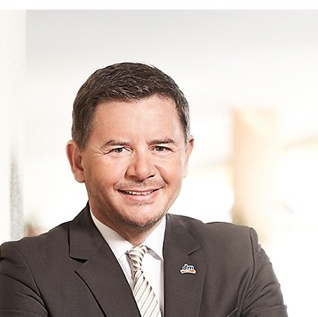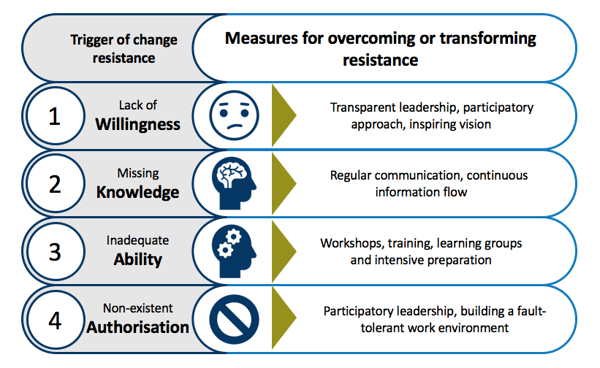Leadership culture at dm - support for self-management
As part of the book presentation "Leadership in a Healthy Organization" on December 1, 2016, several experts gave lectures on their perspectives of a healthy organization - we captured these impressions in videos. Erich Harsch, CEO of dm-drogeriemarkt, showed how healthy leadership is implemented and lived at dm. That wasn't always the case, Harsch explains in the video, when he talks about the "trigger" of cultural change at the beginning of the 1990s. You can see in the video with Erich Harsch how a roller table made dm one of the best employers in Germany and what principles and ideas underlie the dm leadership culture.
The dm boss was not only invited to the book presentation as an expert. In addition it contributed with its expert perspective to the guidance understanding of the technical book leading in the healthy organization . He provided valuable insights into the management culture of the drugstore group. As part of this note, we would like to provide excerpts from the interview and the video presentation in order to provide you with impulses for the healthy and sustainable design of your own management structures.
Figure 1: Erich Harsch,
Chairman of the Management Board of dm (source: dm.de)
Leadership culture at dm: Leadership as support for self-management
39,000 employees, steady growth and a strong and award-winning employer brand - at dm the healthy organization is lived. Perhaps not entirely according to their theoretical ideal, which is presented in the book; but it is precisely the special understanding of leadership within the dm Group that can serve as a role model. Because at dm, leadership does not mean external control, but support for self-management. In fact, Harsch notes, the company is dependent on "as many people as possible in the company working on their own initiative and responsibility". Therefore, according to the dm boss, they must be enabled to "be human". The employee as a holistic person, as an adult, responsible and self-determined person - classic authoritarian and directive management models do not fit into such a world. On the contrary, the role of the executive changes from that of a leader to that of a service provider. Erich Harsch formulates therefore the question, which all enterprises must place themselves in this connection:
"How does one get from external control to self-control, from external control to self-control and from external responsibility to self-responsibility?
Targets goodb-bye, budgets were yesterday
Taking responsibility for oneself, for others and for the whole is not only a goal for employees in companies, but also, according to Harsch, the fundamental model of a modern society. Just as we strive for respect for the individual and respect for individual freedom in social coexistence, companies should also develop respect and esteem for people themselves. According to Harsch, the typical leader mutiny has therefore become obsolete. Setting targets and goals are no longer adequate and contemporary leadership characteristics. Therefore, according to Erich Harsch in the video, dm has no targets, no budgets, no variable incentive systems. Rather, the person responsible for dm describes the fact that today's management task consists of creating framework conditions that enable employees to steer and lead themselves so that they develop self-confidence and an awareness of interrelationships. In the age of modern humans this kind of the guidance is indispensable, since young humans will not let themselves be forced into classical guidance relations.
Redefining the management task: from superior to responsible person
Erich Harsch further argues that managers are responsible for eliminating demotivation factors so that people can unfold. In order to do justice to this unfolding, leaders must tolerate mistakes and achieve a deeper understanding of situational and social adequacy of reward, criticism and feedback. In his opinion, fundamental factors for self-management are freedom, responsibility and decision.

He summarizes:
"Our idea is to create space so that people can take responsibility for their own individual and situational design. [...] We don't need anyone waiting for the boss to say what should be done. We don't need someone who first has to flip through a manual to find out which organizational instruction is intended for it. Rather, we need someone who acts individually, situatively and appropriately."
Self-orientation competence: the key to self-management
For this it is necessary that leaders promote the self-orientation competence of their employees, i.e. their ability to develop new insights according to the situation and to be able to assess and judge themselves. Self-orientation competence is therefore a basis for being able to consciously use and live freedom and responsibility in self-management. For this it is necessary for people to work on their perception, to critically question things and statements and to recognize the essence of something.
Isn't so much freedom risky?
In a self-directed work context that can free itself from outside authority, it is important in the leadership relationship that managers develop the "courage to fill a gap". This means that leaders must abandon the classic model of total control and offer employees freedoms that are not always controllable. Of course there is also the danger that the freedom offered will be abused, but Erich Harsch says quite clearly that it is worth taking this "risk" in any case. In the video he explains that self-managed people make a company more agile and that self-management could therefore be the key to success in a complex, dynamic and digitized business environment. The dm boss states that, unlike top management, employees have enormous potential and knowledge due to their proximity to customers. The example that Erich Harsch explains in relation to dm's Facebook Live appearance at Christmas speaks volumes (min. 7:30).
Conclusion
Both the expert interview and the video show: dm turns the classic hierarchy pyramid upside down. And it works. Above all, because people are at the centre of this change. You will find further information in "Leadership in a Healthy Organization", which deals in more detail with how a self-managing company can function. We thank Erich Harsch for the valuable insights and hope that you can use them as inspiration on your way to a healthy organization.
Literature
Kallenbach, I. (2016). Leadership in a healthy organization: Exceptional performance through potential development. Stuttgart: Schäffer Poeschel.
Reflect - Strategic personnel development. (2017). Book presentation "Leadership in a healthy organization" - speaker: Erich Harsch (chapter 5 part 2). Retrieved from YouTube: https://youtu.be/xIq6LT4JqBk

